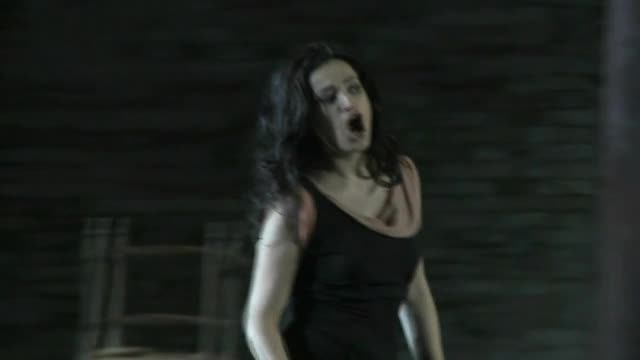George Crumb's reputation as a composer of hauntingly beautiful scores has made him one of the most frequently performed composers in today's musical world. From Los Angeles to Moscow, and from Scandinavia to South America, festivals devoted to the music of George Crumb have sprung up like wildflowers. The winner of a 2001 Grammy Award and the 1968 Pulitzer Prize in Music, Crumb continues to compose new scores that enrich the musical lives of those who come in contact with his profoundly humanistic art.
George Henry Crumb was born in Charleston, West Virginia on 24 October 1929. He studied at the Mason College of Music in Charleston and received the Bachelor's degree in 1950. Thereafter he studied for the Master's degree at the University of Illinois, Champaign-Urbana, under Eugene Weigel. He continued his studies under Boris Blacher at the Hochschule fr Musik, Berlin, from 1954-1955. He received the D.M.A. in 1959 from the University of Michigan, Ann Arbor, after studying with Ross Lee Finney.
George Crumb's early compositions include Three Early Songs (1947), for voice and piano, Sonata (1955) for solo violoncello, and Variazioni (1959) for orchestra, the composer's doctoral thesis. In the 1960s and 1970s, George Crumb produced a series of highly influential pieces that were immediately taken up by soloists and ensembles throughout the world. Many of these were vocal works based on the poetry of Federico Garca Lorca, including Ancient Voices of Children (1970), Madrigals, Books 1-4 (1965, 69), Night of the Four Moons (1969), and Songs, Drones and Refrains of Death (1968). Other major works from this period include Black Angels (1970), for electric string quartet, Vox Balaenae (1971), for electric flute, electric cello and amplified piano, Makrokosmos, Volumes 1 and 2 (1972-73) for amplified piano, Music for a Summer Evening (1974) for two amplified pianos and percussion, and Crumb's largest score, Star-Child (1977), for soprano, solo trombone, antiphonal children's voices, male speaking choir, bell ringers and large orchestra. George Crumb's most recent works include Eine Kleine Mitternachtmusik for solo piano (2001), Otherworldly Resonances for two pianos (2002) and a four-part song cycle, American Songbook (The River of Life, A Journey Beyond Time, Unto the Hills, The Winds of Destiny) (2001-2004). In his music George Crumb often juxtaposes contrasting musical styles. The references range from music of the western art-music tradition, to hymns and folk-music, to non-Western musics. Many of Crumb's works include programmatic, symbolic, mystical and theatrical elements, which are often reflected in his beautiful and meticulously notated scores. A shy, yet warmly eloquent personality, Crumb retired from his teaching position at the University of Pennsylvania after more than thirty years of service. Awarded honorary doctorates by numerous universities and the recipient of dozens of awards and prizes, Crumb makes his home in Pennsylvania, in the same house where he and his wife of more than fifty years raised their three children. George Crumb's music is published by C.F. Peters. George Crumb is the recipient of numerous awards. These range from the Elizabeth Croft fellowship for study, Berkshire Music Centre, 1955, to the 1998 Cannes Classical Award for Best CD of a Living Composer, the 2001 Grammy for Best Contemporary Composition (Star-Child) and nomination in 2004 by Musical America as Composer of the Year.| Title | |
| BIZET, G.: Carmen (Sferisterio Opera Festival, 2008) | |

|
BIZET, G.: Carmen (Sferisterio Opera Festival, 2008)
Composer:
Bizet, Georges
Artists:
Alberghini, Simone -- Coro Lirico Marchigiano 'V. Bellini' -- Courjal, Nicolas -- D'Aguanno, Emanuele -- Do, Philippe -- Dudziak, Francis -- Gardina, Paola -- Lungu, Irina -- Marchigiana Philharmonic Orchestra -- Montanaro, Carlo -- Myshketa, Gezim -- Surguladze, Nino -- Zabala, Alexandra
Label/Producer: Dynamic |
